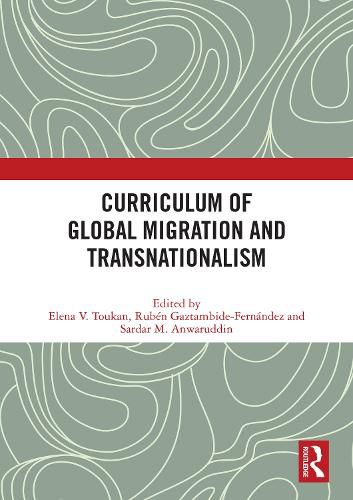Readings Newsletter
Become a Readings Member to make your shopping experience even easier.
Sign in or sign up for free!
You’re not far away from qualifying for FREE standard shipping within Australia
You’ve qualified for FREE standard shipping within Australia
The cart is loading…






Curriculum of Global Migration and Transnationalism seeks to address the question: "What is the curriculum of global/transnational migration?". The authors in this collection explore the multifaceted implications of movement for curriculum, teaching and learning, teacher education, cultural practice, as well as educational research and policy.
In this book, the authors consider the following, among other questions: is the current experience of global/transnational mobility and/or migration really a new phenomenon, or is it an extension of existing processes and dynamics (e.g. colonialism, capitalism, imperialism)? What does global/transnational mobility imply for schools and other educational institutions and processes as spatially located entities? What approaches to curriculum are needed in the constantly shifting context of global movement? How are the "global" and "local" re-imagined through the experiences of mobility and migration?
This book was originally published as a special issue of Curriculum Inquiry.
$9.00 standard shipping within Australia
FREE standard shipping within Australia for orders over $100.00
Express & International shipping calculated at checkout
Curriculum of Global Migration and Transnationalism seeks to address the question: "What is the curriculum of global/transnational migration?". The authors in this collection explore the multifaceted implications of movement for curriculum, teaching and learning, teacher education, cultural practice, as well as educational research and policy.
In this book, the authors consider the following, among other questions: is the current experience of global/transnational mobility and/or migration really a new phenomenon, or is it an extension of existing processes and dynamics (e.g. colonialism, capitalism, imperialism)? What does global/transnational mobility imply for schools and other educational institutions and processes as spatially located entities? What approaches to curriculum are needed in the constantly shifting context of global movement? How are the "global" and "local" re-imagined through the experiences of mobility and migration?
This book was originally published as a special issue of Curriculum Inquiry.